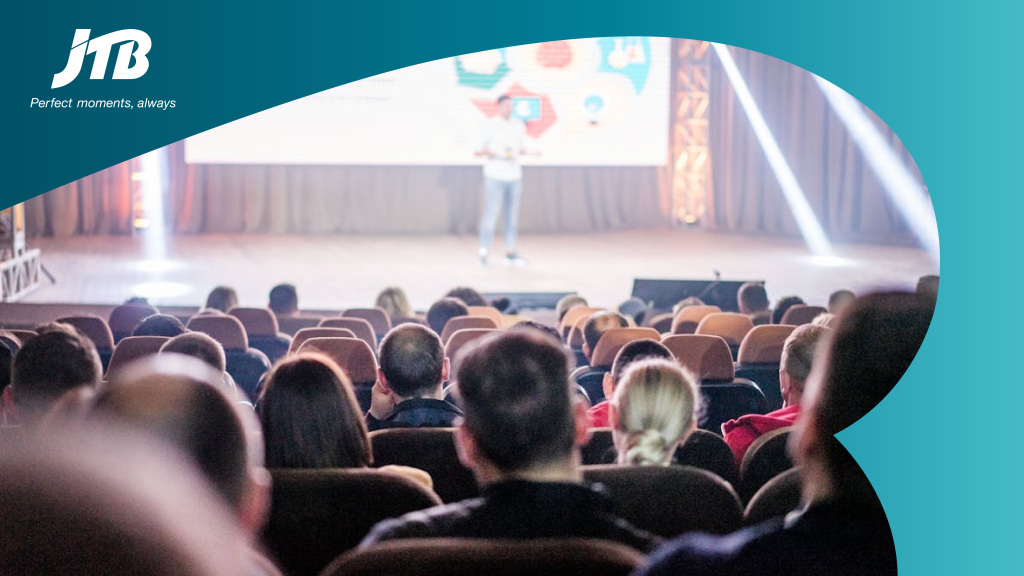5 Tips to Choose the Best Event Management Company in Gurgaon
Introduction
With Gurgaon emerging as a bustling hub for corporate events, companies face a common challenge: selecting the right event management partner. Did you know that the corporate event management industry in India is projected to grow at over 25% annually? This statistic underscores the growing importance of professional event planners in ensuring seamless execution.
JTB India, a leader among corporate event planners in Gurgaon, stands out with its award-winning expertise, cutting-edge solutions, and unparalleled client focus. Recognized for excellence in MICE and hybrid event formats, we’re here to guide you through five key steps to finding the perfect event management company.
1. Evaluate Experience and Expertise to Ensure Success
The foundation of a successful event lies in the experience and expertise of the event management team. A seasoned company can navigate the complexities of event planning, ensuring every detail aligns with your business objectives.
Key Steps to Assess:
- Industry-Specific Expertise: Opt for companies experienced in managing events similar to yours, whether they are MICE events, corporate conferences, or product launches.
- Portfolio Review: Examine their portfolio to evaluate creativity and execution quality. Leading corporate event planners in Gurgaon will showcase diverse events tailored to various industries.
- Success Stories: Request case studies or testimonials that highlight their ability to overcome challenges and deliver impactful results.
Why Choose JTB India?
- Cross-Industry Experience: From finance to technology, we craft tailored solutions for diverse industries.
- Innovative Technology: We leverage tools like virtual reality, AI analytics, and hybrid event platforms, setting a benchmark for professional event management services in Gurgaon.
2. Analyze Reputation and Client Feedback
A company’s reputation is a reflection of its reliability and quality. Look for consistent client satisfaction and high referral rates.
Key Indicators:
- Client Testimonials: Genuine reviews from past clients offer valuable insights into a company’s professionalism and service quality.
- Awards and Recognitions: Industry accolades signal a company’s commitment to excellence.
JTB India’s Commitment to Excellence:
- Recognized Excellence: We’ve earned numerous accolades for our innovative event management solutions.
- Proven Results: For example, we organized a hybrid conference for a global tech firm that saw a 60% increase in attendance, thanks to our digital engagement tools.
3. Explore Service Offerings and Value-Added Solutions
Comprehensive service offerings and flexibility are critical to ensure your event meets its goals.
What to Look For:
- End-to-End Management: Does the company handle everything, from planning to post-event analysis?
- Digital Engagement: Are tools like event apps, virtual booths, or interactive Q&A sessions included?
- Sustainability Practices: Eco-friendly options such as digital invites and waste reduction reflect modern event trends.
Why JTB India Stands Out:
- Tailored Solutions: From venue selection to attendee engagement, we provide turnkey services.
- Sustainability Focus: Our green practices align with the values of environmentally conscious businesses.
- Exclusive Benefits: Strategic partnerships give us access to premium venues and services at competitive rates.
4. Consider Pricing and Return on Investment (ROI)
While budget constraints are important, the value an event management company delivers should take precedence.
Key Considerations:
- Transparent Pricing: Ensure a clear breakdown of costs to avoid hidden charges.
- ROI Optimization: Look for a partner focused on maximizing engagement and leveraging sponsorship opportunities.
JTB India’s Value Proposition:
- Cost Efficiency: Flexible pricing models tailored to different event types.
- Enhanced ROI: Strategic event planning that prioritizes attendee satisfaction and measurable outcomes.
5. Prioritize Communication and Responsiveness
Effective communication ensures a smooth planning process and swift resolution of challenges.
Key Indicators:
- Proactive Updates: Look for regular reports and open communication channels.
- Crisis Management: A reliable company should have contingency plans for unexpected situations.
JTB India’s Approach:
- Dedicated Project Managers: A single point of contact ensures clarity and efficiency.
- Quick Response Times: Our responsive team ensures that last-minute changes are handled seamlessly.
Partner with JTB India for Flawless Event Execution
Selecting the right event management partner can transform your corporate gatherings into memorable experiences. With JTB India, you’re choosing a trusted partner known for its expertise, innovation, and client-centric approach.
Why Choose Us?
- Industry-leading event technologies
- Award-winning MICE and hybrid event solutions
- Tailored services that align with your business objectives
Get Started Today:
Discover how JTB India can elevate your corporate events. Download our free checklist: “10 Must-Have Criteria for Choosing the Best Event Management Company” or contact us for a personalized consultation.
Let’s create events that inspire, engage, and deliver results!




